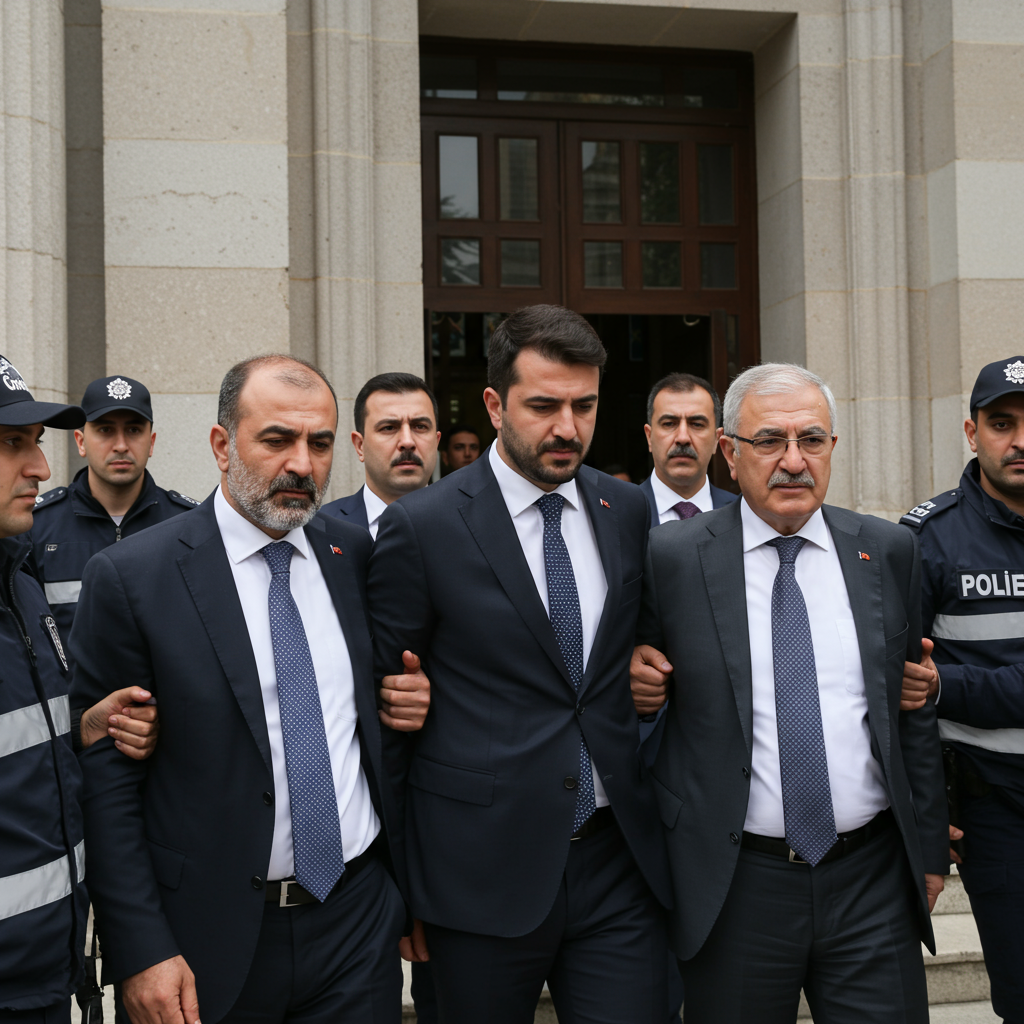The current, severe escalation in the conflict between Israel and Iran wasn’t an inevitable historical outcome; it is the dangerous result of deliberate choices and the actions of key figures whose judgment raises serious questions. This crisis has moved beyond previous cycles of limited exchanges, reaching a level where potentially nothing is off the table, endangering civilians and leaders alike. The Middle East finds itself closer than ever to a disastrous conflagration.
While the roots of the Israel-Iran animosity trace back decades to the 1979 Islamic revolution and an intensifying “shadow war” in recent years, all-out conflict had been avoided until now. The principal responsibility for this unprecedented explosion of hostilities lies significantly with three powerful, aging leaders whose behavior, motives, and even perceived fitness to lead could imperil not just their countries, but the entire world.
Whether driven by ineptitude, the instinct for political survival, or outright corruption, their decisions appear less guided by common sense and national interest than by personal or political imperatives, leading to a perilous moment in global affairs.
Benjamin Netanyahu: The Architect of Conflict?
Israeli Prime Minister Benjamin Netanyahu, 75, is viewed by many as having actively sought a showdown with Iran for years. Critics argue that the recent Israeli attack on Iran proceeded despite ongoing diplomatic talks, deeming the airstrikes unjustified and unlikely to achieve their stated aim of permanently ending Iran’s nuclear efforts. Instead, these actions risk accelerating the program.
Netanyahu’s leadership has faced intense scrutiny. His failures to protect Israelis during the 2023 terror attacks, fulfill vows to destroy Hamas and retrieve hostages (resulting in an estimated 55,000 Palestinian deaths in Gaza), and his expansion of conflicts into Lebanon and Syria are cited as reasons for questioning his fitness to make life-or-death decisions.
A central argument is that war is Netanyahu’s preferred path, serving primarily to maintain his grip on power and shield him and his far-right allies from political and legal challenges, including indictments for alleged war crimes in Gaza. This focus on political survival is seen by many as overshadowing the genuine security concerns he claims to address. Some analysts suggest he is committed to a “forever war” model to avoid accountability and potential defeat in elections, exploiting conflict and patriotic sentiment to suppress domestic opposition. This strategy is often linked to a vision of an “enlarged Israel,” potentially incorporating occupied territories. His actions have severely damaged Israel’s international standing and are argued to have inadvertently fueled global antisemitism.
Ayatollah Ali Khamenei: The Unyielding Supreme Leader
Iran’s Supreme Leader, Ayatollah Ali Khamenei, 86, is seen as the second major figure fueling the crisis. He presides over a repressive, corrupt theocratic regime widely perceived as out of touch with its own people. Marked by fixed elections, pervasive censorship, economic mismanagement, and brutal crackdowns on human rights defenders and minorities, the regime’s internal struggles are significant.
Despite internal opposition from reformers, Khamenei retains ultimate authority. His unwavering insistence on escalating uranium enrichment, even without clear civil applications, is viewed as having provided Netanyahu with a pretext for military action. Khamenei’s commitment is considered a primary reason Iran will not abandon its nuclear ambitions, although the idea of completely eliminating the program is seen as unrealistic.
Khamenei’s threats to attack US, UK, and French bases if they aid Israel, and to potentially close the vital Strait of Hormuz, dramatically heighten the risk of a full-scale regional war and a global energy shock. These actions underscore the dangerous brinkmanship employed by the Iranian regime under his leadership.
Donald Trump: The Catalyst and Enabler
Former US President Donald Trump, 79, is the third figure cited as contributing significantly to this avoidable tragedy. His administration’s decision to “idiotically” withdraw from the previous Iran nuclear deal without a viable alternative is seen as a critical misstep that exacerbated tensions and weakened diplomatic options.
Trump’s approach to foreign policy is often characterized by inconsistency, reliance on perceived intuition rather than detailed analysis, and a susceptibility to manipulation. His “feeble ineptitude” is blamed for his yielding to pressure from figures like Netanyahu for aggressive action against Iran. Even after hostilities commenced, Trump’s subsequent attempts to claim credit and issue personal threats inadvertently reinforced Iran’s suspicions of close US-Israeli coordination.
Beyond Iran, Trump’s broader impact on regional stability is highlighted. His approach to issues like the Gaza conflict has been criticized as indifferent to suffering, yet attempting late intervention while still enabling a “rogue prime minister” through arms and aid. His controversial ideas, such as the notion of forcibly resettling Gazans, have been dismissed as unrealistic, unjust, and even akin to ethnic cleansing, serving to empower extremists and complicate peace efforts. Trump is viewed by some as a “total menace” in international affairs, whose chaotic and narcissistic approach undermines diplomatic efforts and enables figures like Netanyahu and Russia’s Vladimir Putin, who are seen as committed to maintaining power through perpetual conflict. His perceived failure to grasp their reliance on “forever war” makes him vulnerable to manipulation, hindering genuine peace efforts.
The Perilous Path Ahead
The combined influence and actions of these three leaders — Netanyahu’s political survival instincts driving expansionist conflict, Khamenei’s unyielding authoritarianism and nuclear ambitions, and Trump’s disruptive and often counterproductive foreign policy – have created a volatile and dangerous situation in the Middle East. Their shared traits, including disregard for diplomatic norms, exploitation of crises for political gain, and a focus on nationalistic visions potentially rooted in supremacy, contribute to undermining global values and fostering instability.
While external pressure and international diplomacy are seen as crucial, the presence of leaders seemingly committed to conflict or ill-equipped to navigate complex crises leaves the region, and potentially the world, facing an alarming future where personal agendas threaten widespread death and global instability. Ending the cycle of violence and finding a path towards lasting peace requires not only addressing the complex geopolitical issues but also confronting the dangerous influence of leaders whose actions prioritize power over peace.

